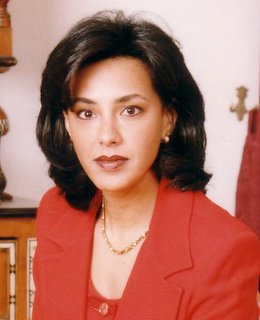Putin's Munich Missive
 Updated:
Updated:Today in Munich, Russia's President, Vladimir Putin, warned of the dangers of a unipolar world. His statement, tantamount to the proverbial dropping of the gauntlet, came at the 43rd Munich Conference for Security Policy. In a speech very reminiscent of the days of bipolar yore, Putin pointed at the United States as perhaps the leading cause of international insecurity today.
His argument is that the US unconstrained use of military might is placing other countries in a position of insecurity which in turn is pushing them towards seeking nuclear weapons. In other words, the US has become a catalyst for an international nuclear arms race.
Unfortunately, the Conference website does not yet have the English translation [update: it is now online] of the speech, but news reports are quoting him as saying:
According to BBC:
Mr Putin told senior security officials from around the world that nations were "witnessing an almost unconstrained hyper use of force in international relations".
"One state, the United States, has overstepped its national borders in every way," the Russian president said.
"This is very dangerous. Nobody feels secure anymore because nobody can hide behind international law," he said, speaking through a translator.
"This is nourishing an arms race with the desire of countries to get nuclear weapons."
And here is the Washington Post:
Russian President Vladimir Putin, in some of his harshest criticism of the United States since he took office seven years ago, said Saturday that Washington's unilateral, militaristic approach had made the world a more dangerous place than at any time during the Cold War.
"The United States has overstepped its national borders in every way," he said in an address at an annual international security conference here. "Nobody feels secure anymore, because nobody can take safety behind the stone wall of international law."
The Russian president defended his country's arms sales to Iran as a way of reaching out to that Middle Eastern power, which is under pressure from the United States and Europe to curtail its nuclear program. Russia has supplied some air defense weapons to Iran because, he said, "we don't want Iran to feel cornered."
And the New York Times:
President Vladimir V. Putin of Russia accused the United States on Saturday of provoking a new nuclear arms race by developing ballistic missile defenses, undermining international institutions and making the Middle East more unstable through its clumsy handling of the Iraq war.
In an address to an international security conference, Mr. Putin dropped all diplomatic gloss to recite a long list of complaints about American domination of global affairs, including many of the themes that have strained relations between the Kremlin and the United States during his seven-year administration.
Among them were the expansion of NATO into the Baltics and the perception in Russia that the West has supported groups that have toppled other governments in Moscow’s former sphere of influence.
Rubble from the Berlin Wall was “hauled away as souvenirs” to countries that praise openness and personal freedom, he said, but “now there are attempts to impose new dividing lines and rules, maybe virtual, but still dividing our mutual continent.”
The world, he said, is now unipolar: “One single center of power. One single center of force. One single center of decision making. This is the world of one master, one sovereign.”
Yet, before the pundits rush to shoot the messenger, perhaps his words are worthy of some serious thought. Does the perception of threat contained in such words as "axis of evil" cause those targeted states to suddenly feel threatened?
More to the point, did Bush's use of those words suggest to North Korea and Iran that they better get nuclear weapons before the US invades push them to pursue their nuclear programs quicker? Did the US invasion and occupation of Iraq only strengthen their threat perception? Are other states watching and taking note? On the other hand, was the US only alerting the world to what was already underfoot in these countries?
Now that these states are pursuing their self-interest, are neighboring states feeling the pressure to protect themselves as well? In short, has the US triggered a chain reaction? Already, other countries in the Middle East are embarking on "civilian" nuclear programs, with, it should be added, US blessings.
What about international law? Has the US disregard for international law and norms paved the way for other states to do the same? Or, as Putin may have been suggesting, has the US military actions and bellicose discourse suggested to states that international law is no longer (if it ever was) a restraint against hyper power incursion and threat? If states no longer view international law and norms as protecting state sovereignty against military threat, then has the US short term action resulted in a medium term affirmation of the realist world of self-help?
In short, this is a debate worthy of having.
Labels: Hegemony, International Law, Munich Security Conference, Putin, Russia, USA




1 Comments:
CNN quotes
NATO Secretary General Jaap de Hoop Scheffer said he was disappointed by Putin's criticism about NATO expansion. "Who can be worried that democracy and the rule of law is coming closer to somebody's border?" he asked
unquote
Then next step is better: to bring somebody's "rule of law" in the country directly, is't it?
Post a Comment
<< Home